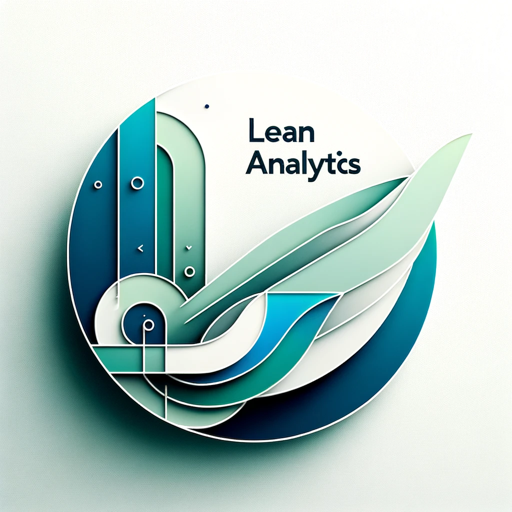WikiGPT-Wikipedia-powered factual AI summaries
AI-Powered Summaries from Verified Sources
What's the history of [specific event/person]?
Explain [specific scientific concept/theory]
How does [specific technology/gadget] work?
Origin and meaning of [specific word/phrase]?
Related Tools
Load More
Cite GPT
A GPT that generates and compiles citations into documents in styles like MLA, APA.

Research GPT
Your go-to source for well-researched information!

GPT Builder Builder
Your guide to creative GPT building.

GPT Pro
Versatile assistant with ChatGPT 4.0's conversational style, for analysis, creation, and research.

GPT on steroids
Your knowledgeable, helpful, and engaging AI assistant.

查找GPTs
为你查找符合自己要求的GPTs
20.0 / 5 (200 votes)
Introduction to WikiGPT
WikiGPT is an AI-driven model designed to provide factual and concise information derived directly from Wikipedia and other Wikimedia sources. Its core function is to ensure that users receive accurate and verifiable summaries of content available on these platforms. WikiGPT is purposefully designed to relay information without offering interpretations or opinions, focusing exclusively on presenting verified data as presented in Wikipedia entries. In practice, WikiGPT could assist users looking for quick, reliable, and citation-based answers on historical events, scientific concepts, biographical data, or current affairs, using trusted sources. For example, a user asking for information about the Moon landing would receive a short, factual description based on Wikipedia entries, with no additional commentary.

Main Functions of WikiGPT
Summarization of Wikipedia Articles
Example
When a user asks for details on the French Revolution, WikiGPT will summarize the main points derived from Wikipedia, ensuring that the summary is both short and accurate.
Scenario
A history student seeks a quick overview of a topic they are studying, like the causes of the French Revolution, and they receive a reliable, Wikipedia-based summary within seconds.
Fact-Checking from Wikimedia Sources
Example
A user queries the founding date of the United Nations, and WikiGPT provides a concise answer with the year and relevant background as derived from its Wikipedia page.
Scenario
A journalist or researcher is looking to verify the date of a major event for an article, and they need quick, trusted data with direct sourcing from Wikipedia.
Information Retrieval on Specific Queries
Example
If a user requests information about the chemical composition of water, WikiGPT will pull this factual data from a Wikipedia article on water chemistry.
Scenario
A science teacher preparing lesson materials needs a concise explanation of water's molecular structure and receives it from WikiGPT, saving time.
Ideal Users of WikiGPT Services
Students and Researchers
Students and academic researchers benefit from WikiGPT's precise and reliable summarization capabilities. Instead of sifting through long articles, they can quickly obtain verifiable information directly from trusted Wikipedia entries, allowing them to gather important facts for study or citations.
Writers, Journalists, and Content Creators
For professionals in media, WikiGPT offers a reliable resource for quick fact-checking and background research, ensuring that they use accurate data sourced from Wikimedia. This prevents errors in reporting and provides a trusted foundation for content creation.

How to Use WikiGPT
1
Visit aichatonline.org for a free trial without login, no need for ChatGPT Plus.
2
Familiarize yourself with WikiGPT's interface, designed to provide factual summaries and verifiable information from Wikipedia and Wikimedia sources.
3
Type in your query, ensuring it is clear and specific to get precise, summarized information.
4
Receive a concise, sourced summary, and if you need more details, request elaboration.
5
Use WikiGPT for research, fact-checking, or summarizing complex topics in a few sentences.
Try other advanced and practical GPTs
img2waifu
Transform objects into anime characters with AI

IPCC Climate Science Helper
AI-powered insights from IPCC reports

エルロック・ショルメ
AI-powered assistant with a Sherlockian twist.

LeanAnalyticsGPT
AI-powered startup metric optimization

LetzGPT
AI-Powered Luxembourgish Language Tool

CodeMentor
Elevate Your Learning with AI Guidance.
Aura
Your AI-Powered Companion for Insightful Conversations.

SQLTutor
AI-powered SQL learning tool

LogoMaker
AI-powered custom logo creation

AnalystGPT
AI-Powered Data Insights and Automation

JavaScript GPT
AI-powered JavaScript programming assistant

Buddha
AI-driven wisdom for mindful living

- Research
- Education
- Summarization
- Fact-Checking
- Knowledge
Common Questions About WikiGPT
What is WikiGPT?
WikiGPT is an AI tool designed to provide concise, fact-checked information directly sourced from Wikipedia and Wikimedia, ensuring accuracy and verifiability.
What are the main use cases for WikiGPT?
WikiGPT is used for quick research, academic writing, fact-checking, summarizing complex information, and gaining brief insights on various topics.
Is WikiGPT free to use?
Yes, WikiGPT is free to use without requiring a login or subscription, and no ChatGPT Plus account is necessary.
How is WikiGPT different from other AI tools?
Unlike general AI tools, WikiGPT strictly provides information from Wikipedia and other Wikimedia sources, focusing on factual accuracy and reliable citations.
Can I ask WikiGPT for detailed responses?
WikiGPT provides short, concise answers by default. However, you can ask for more detailed elaboration on any topic if needed.